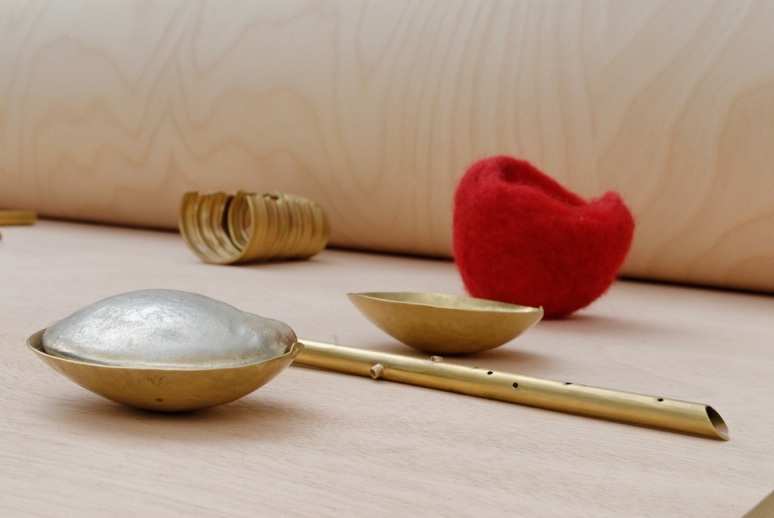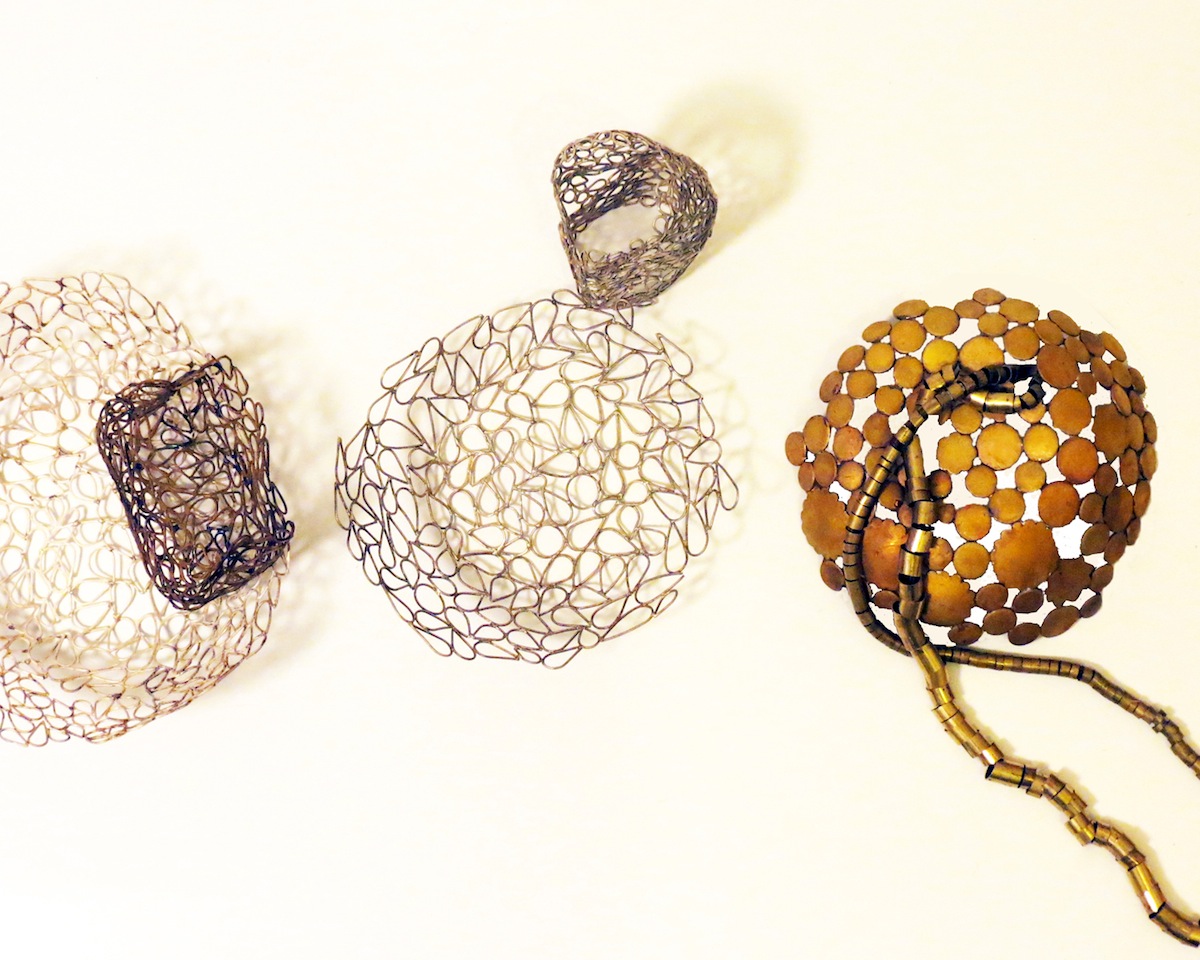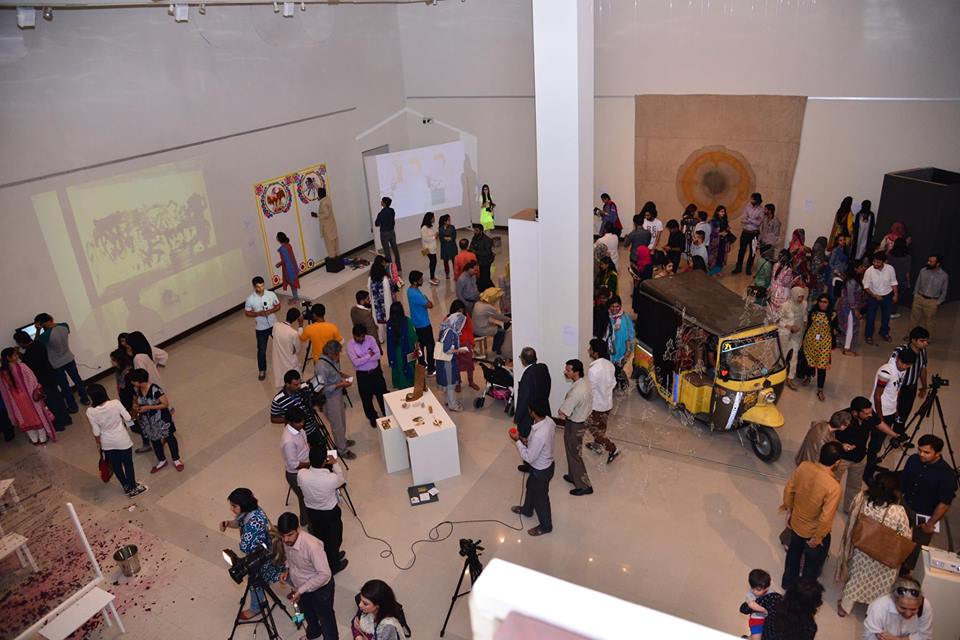Spotlight Alumni: Amina Rizwan
Pushing the boundaries of metal through art
Amina Rizwan has the ability to bend and mold metal at will. No, she is not telekinetic (though that would be amazing!) — rather, she has the very human ability of shaping and adorning certain metals. A Lahore-based jewelry designer, Amina works as an independent artist, contemporary jeweler, and is also a contributing writer for international art and jewelry magazines. Amina’s jewelry reflects her subcontinental heritage and incorporates gemstones from across Pakistan into her designs, for what she calls a “jewelized transformation”, albeit with a contemporary, global appeal.
A recipient of the Fulbright scholarship, Amina graduated from the Cranbrook Academy of Arts in Michigan with a Master’s in Fine Arts in Metalsmithing. Her works have been exhibited at Galerie Marzee, Netherlands, Cranbrook Art Museum and Forum Gallery, Michigan, Macy’s Gallery, Columbia University, New York and PNCA, Islamabad.
Amina did her undergraduate in Jewelry Design, from Beaconhouse National University, Lahore where she graduated with Distinction. Currently an Assistant Professor at Pakistan Institute of Fashion & Design, she has also taught at Beaconhouse National University in Lahore.
How would you describe your experience in the U.S.?
My experience pursuing an MFA in Metalsmithing, at Cranbrook Academy of Arts, Michigan was overwhelming and inspiring beyond words. It changed my idea of “making”, re-thinking craft, (specifically metal), what “skill” is and how crafts can foster new dialogues within contemporary art and design. The exposure came from studio critics, learning under distinguished artists-in-residences. Art was everywhere: in conversation on dinner table or between smiting metal and curating shows in gallery on campus.
What does the Fulbright grant represent to you?
Leadership, empowerment and embracing diversity (both academically and not). These core principles helped me grow, but most of all, taught me tolerance and empathy. The grant also gave me the opportunity to showcase my work at Galerie Marzee, Netherlands: becoming the first Pakistani to showcase my work at this contemporary jewelry and objects space, where my proposal ‘Baggage’ was selected as a context for the show.
A professor back at Cranbrook would always insist to not explain my work and “trust the viewers enough so they can always bring more to your work”. This changed how I approached arts and this is what I want to pass on to my students too.
Where are you now and how has your scholarship contributed to your present success?
I taught at Beaconhouse National University (BNU) after relocating back to Pakistan, and then permanently joined Pakistan Institute of Fashion & Design, as an Assistant Professor in the Department of Jewelry Design and Gemological Sciences. My studies in the U.S. encouraged me to develop a holistic approach in design studies and this is significantly attached to my design thesis which I teach to final year undergraduates.
I stress upon my students to pursue issues which are meaningful and deeply attached to their identity. One of my students did her thesis on acid victims, where she worked closely with the Depilex Smile Again Foundation. It is these kind of experiences which I find rewarding, which enact a sense of social responsibility.
A professor back at Cranbrook would always insist to not explain my work and “trust the viewers enough so they can always bring more to your work”. This changed how I approached arts and this is what I want to pass on to my students too.
The MFA program also strengthened my arts’ critique skills, and offered me a slot to join myriad pool of writers at one of the most distinguished contemporary jewelry magazine, Art Jewelry Forum, in the US where three of my critical essays have been published. I hope to use this experience to reach out to emerging artists and designers on how to adopt holistic approach towards their practices, through writing, making and social practices.
What gets you excited every morning? What motivates you?
The fact that everyday can lead to astonishment, joy or disappointment, and that I can translate these complex emotions into my work is what motivates me. Secondly, hearing out students’ or skilled artisans’ ideas and interacting with them, is also genuine motivation for me.
How do you think your artwork is changing perceptions in Pakistan?
Craftsmanship has always attracted me as does the poetics of the past, identity and contemporary culture. I am excited by the prospects of what happens when these two meet. There is no concept of metalsmithing as an education or art practices in Pakistan and I’m hoping to bring about this change: push the boundaries through art. For instance, the skills and techniques surrounding metalwork, both date back to the illustrious periods of the Mughals and British Raj, now only seen as remnants dotted across the Walled City’s gates and specific bazaars across Pakistan. How can such artistry be assessed / theorized through research and contemporary applications, practices? I am trying to address this gap through my own artwork, academic teaching, collaborating with craftsmen and critical writing. I have invited a German based metalsmith to Pakistan to impart training in hollowware with students and select craftsmen from the Walled City, in February next year, which I hope can be a good study on developing sustainable channels for this discipline.
What is the most significant thing that’s happened to you since graduating? This could be a personal and or professional development.
With much gratitude I say this; one of my critical essay about ornaments from a socio-political perspective, was selected for inclusion in an upcoming contemporary jewelry book to be launched early next year, by Art Jewelry Forum.
Your favorite Fulbright memory? Maybe you really enjoyed eating from a particular food truck during your stay at Cranbrook?
The 24 hours access to a studio, which had a kitchen table with benches welded straight from the handcraft studio. The space had gorgeous, big windows that gave the perception of meeting the sky outside. The whole experience of eating, sketching on that table was so Dutch or Bauhaus in nature. I don’t know how (and it is may sound clichéd) but sitting there all the while, taught me to be more honest with myself!
Interviewed by Merium Kazmi. Merium is an Alumni Programs Officer and works in our Alumni Department. If you know of alumni who should be profiled, please email her.
All images are courtesy of the artist, Amina Rizwan.







